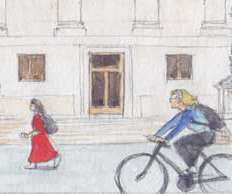Supreme Court Lowers the Bar for Title VII Suits Alleging Discriminatory Transfers
Constitutional Law Reporter
MAY 21, 2024
Louis, Missouri , 601 U.S. _ (2024), the U.S. Supreme Court unanimously held that an employee challenging a job transfer under Title VII of the Civil Rights Act of 1964 must show that the transfer brought about some harm with respect to an identifiable term or condition of employment, but that harm need not be significant. City of St.





















Let's personalize your content